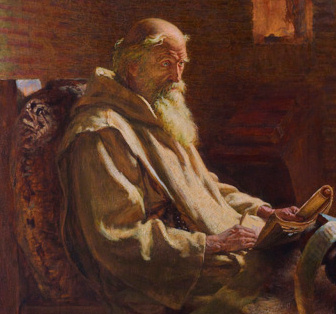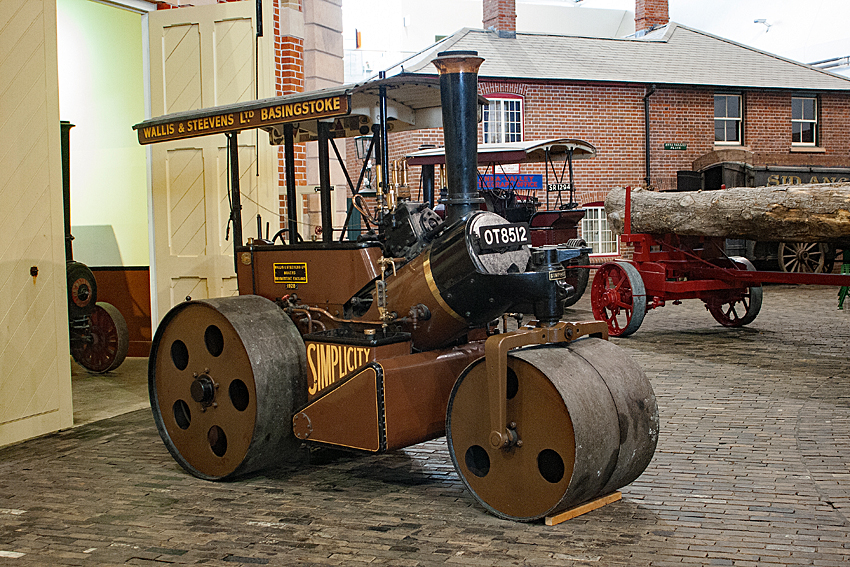|
Royal Vill
A royal vill, royal ''tun'' or ''villa regalis'' () was the central settlement of a rural territory in Anglo-Saxon England, which would be visited by the King and members of the royal household on regular circuits of their kingdoms. The royal vill was the centre for the administration of a subdivision of a kingdom, and the location where the subdivision would support the royal household through the provision of food rent. Royal vills have been identified as the centres of the '' regiones'' of the early Anglo-Saxon period, and of the smaller multiple estates into which ''regiones'' were gradually divided by the 8th century. The British Isles during the early Middle Ages lacked the sophisticated long-distance trade in essential foodstuffs required to support agriculturally unproductive households in a single location. Kings and their entourages could therefore only support themselves by constantly moving between territories with an obligation to support them, and they maintained net ... [...More Info...] [...Related Items...] OR: [Wikipedia] [Google] [Baidu] |
Anglo-Saxon England
Anglo-Saxon England or early medieval England covers the period from the end of Roman Empire, Roman imperial rule in Roman Britain, Britain in the 5th century until the Norman Conquest in 1066. Compared to modern England, the territory of the Anglo-Saxons stretched north to present day Lothian in southeastern Scotland, whereas it did not initially include western areas of England such as Cornwall, Herefordshire, Shropshire, Cheshire, Lancashire, and Cumbria. The 5th and 6th centuries involved the collapse of economic networks and political structures and also saw a radical change to a new Anglo-Saxon language and culture. This change was driven by movements of peoples as well as changes which were happening in both northern Gaul and the North Sea coast of what is now Germany and the Netherlands. The Anglo-Saxon language, also known as Old English, was a close relative of languages spoken in the latter regions, and genetic studies have confirmed that there was significant migrat ... [...More Info...] [...Related Items...] OR: [Wikipedia] [Google] [Baidu] |
King
King is a royal title given to a male monarch. A king is an Absolute monarchy, absolute monarch if he holds unrestricted Government, governmental power or exercises full sovereignty over a nation. Conversely, he is a Constitutional monarchy, constitutional monarch if his power is restrained by fixed laws. Kings are Hereditary monarchy, hereditary monarchs when they inherit power by birthright and Elective monarchy, elective monarchs when chosen to ascend the throne. *In the context of prehistory, antiquity and contemporary indigenous peoples, the title may refer to tribal kingship. Germanic kingship is cognate with Indo-European languages, Indo-European traditions of tribal rulership (cf. Indic ''rājan'', Gothic ''reiks'', and Old Irish ''rí'', etc.). *In the context of classical antiquity, king may translate in Latin as ''rex (king), rex'' and in Greek as ''archon'' or ''basileus''. *In classical European feudalism, the title of ''king'' as the ruler of a ''kingdom'' is und ... [...More Info...] [...Related Items...] OR: [Wikipedia] [Google] [Baidu] |
Food Rent
Food render or food rent (Old English: ''foster'') was a form of tax in kind (Old English: ''feorm'') levied in Anglo-Saxon England, consisting of essential foodstuffs provided by territories such as ''regiones'', multiple estates or hundreds to kings and other members of royal households at a territory's royal vill. The early medieval British Isles lacked the sophisticated trade in essential foodstuffs that had supported the urban economies of Roman Britain, and which would be necessary to support large agriculturally unproductive households remaining static in a single location. Kings and their entourages therefore constantly toured the subdivisions of their kingdoms, staying at networks of royal properties where they could expect to be supported by the territory's inhabitants. In the words of historian Thomas Charles-Edwards: "it made much more sense to take a royal household to the food than the food to the royal household". Food renders were distinct from the tribute that Kin ... [...More Info...] [...Related Items...] OR: [Wikipedia] [Google] [Baidu] |
Regiones
''Regiones'' (singular: ''regio'') or ''provinciae'',(singular: ''provincia''), also referred to by historians as small shires or early folk territories, were early territorial divisions of Anglo-Saxon England, referred to in sources such as Anglo-Saxon charters and the writings of Bede. They are likely to have originated in the years before 600, and most evidence for them occurs in sources from or about the 7th century. ''Regiones'' were self-sufficient units of mixed subsistence agriculture consisting of scattered settlements producing the range of foodstuffs and other forms of produce necessary to support their population. They formed the defined territories of tribes or similar social groupings and were the building-blocks around which the larger Anglo-Saxon kingdoms were governed. ''Regiones'' gradually fragmented in the later Anglo-Saxon period as land was granted into private or ecclesiastical ownership by charter, and the smaller manors that emerged were gradually re-orga ... [...More Info...] [...Related Items...] OR: [Wikipedia] [Google] [Baidu] |
Anglo-Saxon Multiple Estate
An Anglo-Saxon multiple estate was a large landholding controlled from a central location with surrounding subsidiary settlements. These estates were present in the early Anglo-Saxon period, but fragmented into smaller units in the late Anglo-Saxon period. Despite some academic criticism, the concept has been widely used and a large number of possible examples have been proposed. Definition The concept of an Anglo-Saxon multiple estate was developed by Professor Glanville Jones of Leeds University. The idea originally appeared in a paper published in 1961 and was fleshed out in a 1976 book on medieval settlement. The term "great estate" is sometimes used as an alternative to multiple estate. These estates typically contained various features: * a central '' caput'' from which the estate was managed * a minster church providing parochial support to the whole estate * surrounding agricultural settlements specialising in particular crops. The specialised settlements, dependent on ... [...More Info...] [...Related Items...] OR: [Wikipedia] [Google] [Baidu] |
Yeavering
Yeavering () is a hamlet in the north-east corner of the civil parish of Kirknewton in the English county of Northumberland. It is located on the River Glen at the northern edge of the Cheviot Hills. It is noteworthy as the site of a large Anglo-Saxon period settlement that archaeologists have interpreted as being one of the seats of royal power held by the kings of Bernicia in the 7th century AD. Evidence for human activity in the vicinity has been found from the Mesolithic, Neolithic and Bronze Age periods, although it would be in the Iron Age that significant settlement first occurred at Yeavering. In this period, a heavily inhabited hillfort was constructed on Yeavering Bell which appears to have been a major settlement centre at the time. According to Book 2 Chapter 14 of the ''Ecclesiastical History'' of the Venerable Bede (673–735), in the year 627 Bishop Paulinus of York accompanied the Northumbrian king Edwin and his queen Æthelburg to their royal vill (the Lati ... [...More Info...] [...Related Items...] OR: [Wikipedia] [Google] [Baidu] |
Northumbria
Northumbria () was an early medieval Heptarchy, kingdom in what is now Northern England and Scottish Lowlands, South Scotland. The name derives from the Old English meaning "the people or province north of the Humber", as opposed to the Southumbria, people south of the Humber, Humber Estuary. What was to become Northumbria started as two kingdoms, Deira in the south and Bernicia in the north. Conflict in the first half of the seventh century ended with the murder of the last king of Deira in 651, and Northumbria was thereafter unified under Bernician kings. At its height, the kingdom extended from the Humber, Peak District and the River Mersey on the south to the Firth of Forth on the north. Northumbria ceased to be an independent kingdom in the mid-tenth century when Deira was conquered by the Danelaw, Danes and formed into the Kingdom of York. The rump Earl of Northumbria, Earldom of Bamburgh maintained control of Bernicia for a period of time; however, the area north of R ... [...More Info...] [...Related Items...] OR: [Wikipedia] [Google] [Baidu] |
Basingstoke
Basingstoke ( ) is a town in Hampshire, situated in south-central England across a valley at the source of the River Loddon on the western edge of the North Downs. It is the largest settlement in Hampshire without city status in the United Kingdom, city status. It is located north-east of Southampton, south-west of London, west of Guildford, south of Reading, Berkshire, Reading and north-east of the county town and former capital Winchester. According to the 2021 population estimate, the town had a population of 185,200. It is part of the borough of Basingstoke and Deane and part of the constituency#United Kingdom, parliamentary constituency of Basingstoke (UK Parliament constituency), Basingstoke. Basingstoke is an old market town expanded in the mid-1960s, as a result of an agreement between London County Council and Hampshire County Council. It was developed rapidly after the Second World War, along with various other towns in the United Kingdom, in order to accommodate ... [...More Info...] [...Related Items...] OR: [Wikipedia] [Google] [Baidu] |
Anglo-Saxon Society
The Anglo-Saxons, in some contexts simply called Saxons or the English, were a cultural group who spoke Old English and inhabited much of what is now England and south-eastern Scotland in the Early Middle Ages. They traced their origins to Germanic settlers who became one of the most important cultural groups in Britain by the 5th century. The Anglo-Saxon period in Britain is considered to have started by about 450 and ended in 1066, with the Norman Conquest. Although the details of their early settlement and political development are not clear, by the 8th century an Anglo-Saxon cultural identity which was generally called had developed out of the interaction of these settlers with the existing Romano-British culture. By 1066, most of the people of what is now England spoke Old English, and were considered English. Viking and Norman invasions changed the politics and culture of England significantly, but the overarching Anglo-Saxon identity evolved and remained dominant even ... [...More Info...] [...Related Items...] OR: [Wikipedia] [Google] [Baidu] |



